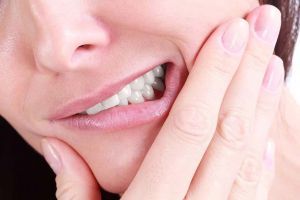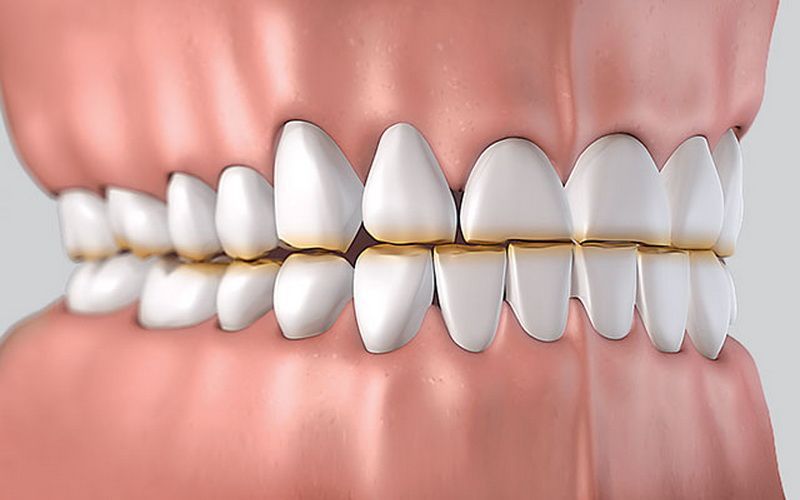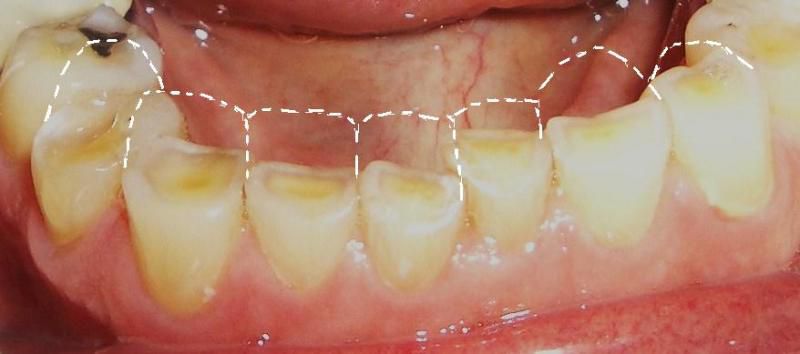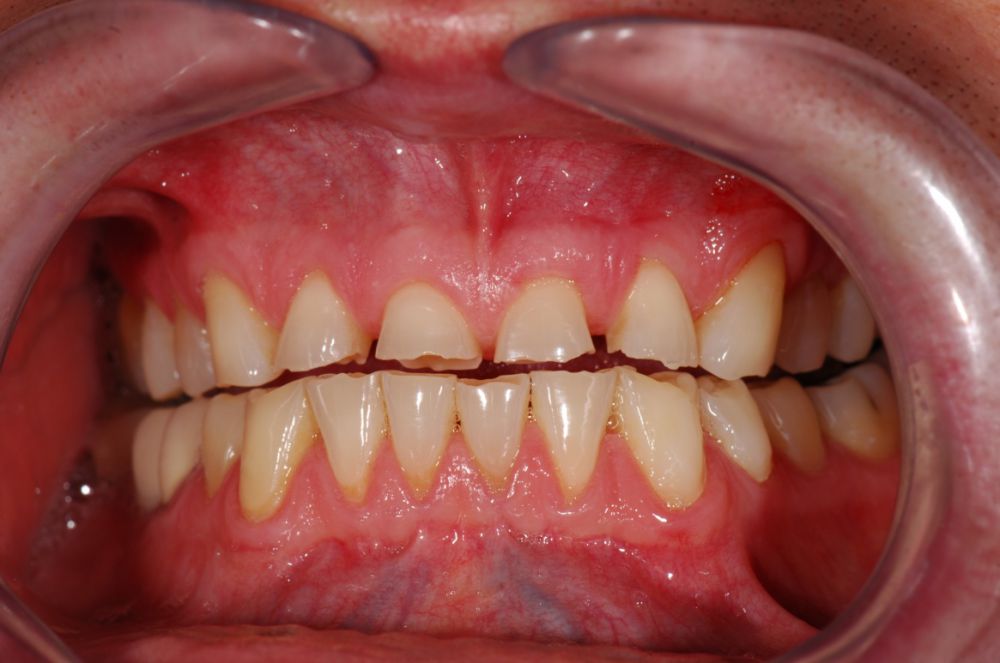Bruxism treatment in Torrevieja

Table of contents
Causes of bruxism
Symptoms of bruxism
Effects
Diagnosis of bruxism
Treatment of bruxism
Bruxism is an involuntary contraction of the chewing muscles, causing gnashing of teeth or episodic jaw clenching.
Causes of bruxism
The mechanisms of the occurrence and development of bruxism have not been fully studied, Dentists only assume the factors of its occurrence.
Bruxism is often found in children. It is assumed that this is associated with the eruption of baby teeth in infancy, and then with a change of bite, eruption of permanent teeth, intensive growth of the body and psycho-emotional stress.
At any other age, the underlying cause of the disease is a combination of several causes:
Hereditary predisposition. The probability of bruxism in a child is 50% higher if the parents had this disease
Dental reasons: incorrect position of teeth, their absence, malocclusion, understated height of fillings, dentures and dental structures, periodontitis, eruption of wisdom teeth - all this violates the adequate closure of the jaws, which disrupts the coordinated work of the chewing apparatus and muscle spasm
Concomitant diseases: pathology of the ENT organs, violation of nasal breathing due to adenoids, chronic rhinitis, curvature of the nasal septum, enuresis (urinary incontinence), gastroesophageal reflux, disorders of the gastrointestinal tract, apnea, parasitosis, infectious diseases.
Psychological reasons: stress, fears, emotional experiences, anxiety, violations of adequate sleep and nutrition, depressive states, social and psychological distress. The patient closes his jaw, bites a pencil or pen to keep negative emotions and not give them an outlet. To do this, they specifically contract the chewing muscles, often this habit turns into a reflex and becomes uncontrollable and self-reproducible during mental stress.
Neurological and motor disorders. Abnormalities in the activity of the central and peripheral nervous system. Neurotransmitter dysfunction, improper functioning of the autonomic nervous system at night, attention deficit and/or hyperactivity disorder, involuntary muscle spasms (including limb tremors), sleepwalking, motor disorders (Parkinson's disease, Huntington's disease), epilepsy, dementia, taking neuroleptic drugs (antipsychotics)
Insomnia. Insufficient sleep duration and poor sleep quality affect the psycho-emotional state, which leads to chronic fatigue and increased irritability. Negative emotions make your jaw clench. At first, a person does this consciously, but later he develops a conditioned reflex.
Osteopathic causes: diseases of the temporomandibular joint (TMJ), cervical spine, birth or traumatic brain injuries.
Chemical factors: coffee abuse, alcohol, smoking, drugs, antidepressants and other medications
Symptoms of bruxism
The main manifestations of bruxism are involuntary contraction of the chewing muscles, gnashing and clenching of teeth. Seizures can occur both at night and during the day. And they usually last from a few seconds to several minutes and can be repeated many times. In the initial stages, this condition does not cause discomfort, but in the future it can lead to migraines, tooth abrasion and joint pathology.
It is often difficult to notice the appearance of symptoms yourself, since they most often occur at night.
Usually, a spasm or contraction of the chewing muscles is provoked by some stressful situation or event that requires prolonged concentration: playing on the computer, doing homework.
The main symptoms:
Gnashing and clenching of teeth.
Increased sensitivity of the teeth.
Increased tooth abrasion.
Chipped and cracked enamel, fillings, dentures, crowns, wedge-shaped defects.
Pain in the chewing muscles.
Discomfort when closing teeth.
Headache and dizziness.
Pain and ringing in the ears.
Concomitant symptoms:
Instability in behavior.
Biting a pencil and pen.
Frequent use of chewing gum or sunflower seeds.
Drowsiness, weakness in the body, fatigue due to poor sleep quality
It should be noted that the described symptoms may also be a manifestation of another disease. In the AP-Denta clinic, it is possible to carry out a comprehensive diagnosis and identify the cause of these conditions, since the clinic is equipped with all the necessary equipment and specialists.
Effects
Constant friction of hard tissues against each other leads to their pathological decrease, excessive pressure on the joint and increased muscle spasm, compression of blood vessels and nerves, which leads to the following complications:
Excessive wear, chipping and destruction of teeth and dentures.
Increased sensitivity of teeth
The appearance or intensification of pain in the joint, muscles, head, neck, ears, chewing, opening the mouth.
Dizziness due to impaired blood supply and nerve conduction.
Chronic fatigue. Fatigue, drowsiness
Reduction of the lower third of the face as in the elderly, jaw displacement, facial asymmetry;
The development of a dislocation of the jaw;
Arthritis, arthrosis.
Restriction in the movement of the joint or complete immobilization of the joint.
Diagnosis of bruxism
The diagnosis is based on the following data:
Collecting anamnesis and complaints
Examination of teeth and oral cavity
Palpation of muscles and joint area
Functional tests
Using Brooks checkers - special mouthguards to identify redundant contacts
Computed tomography of jaws and joints
For differential diagnosis, it is possible to involve specialists of another profile — a neurologist, an otolaryngologist, a gastroenterologist, a psychologist.
Treatment of bruxism
Bruxism is not completely cured, but it is possible to relieve symptoms and put the disease into remission.
An integrated approach is used for this:
Lifestyle changes
Adjustment of sleep and nutrition, exclusion of stimulating drinks and food (coffee, cocoa, energy, tea, chocolate, alcohol) moderate physical activity, full rest and before going to bed, walks and quiet activities are recommended, exclusion of annoying factors (watching the news, using the phone and computer, watching stressful movies)
Drug therapy
In the presence of neurological disorders, a neurologist is prescribed with the prescription of the necessary drugs: anticonvulsants, nootropics, B vitamins to relieve tension.
Calcium and magnesium preparations to normalize the work of the chewing muscles, to improve the quality of sleep, sedatives and hypnotics. As well as multivitamin complexes to establish metabolic processes and accelerate recovery.
The course of treatment can last up to 4 months.
Dental treatment
Treatment of caries and periodontal inflammation, restoration of wedge-shaped defects
The manufacture of an individual protective muscle relaxant mouthguard, which is put on the teeth to prevent their friction and prevent further destruction of hard tissues, as well as to relieve increased muscle spasm.
Restoration of the integrity of the dentition and restoration of the bite height of worn tooth tissues: restorations with composite material, manufacture of linings, crowns, prostheses, veneers
Sometimes orthodontic treatment with braces or aligners is required.
Psychotherapy
Contacting a psychotherapist and psychological sessions help to change attitudes towards the stressful factor, develop skills to monitor your condition and cope with life difficulties more easily
Physical therapy
To normalize the functional activity of the muscles of the jaw and neck, massage, osteopathic treatment, manual therapy, sessions of electrical stimulation of the muscles of the chewing muscles - TENS therapy, warming compresses can be prescribed
The doctors of the AP-Denta clinic have the necessary knowledge and extensive experience in the diagnosis and successful treatment of bruxism, and modern equipment allows you to perform the necessary research in one place.
Contact Information:
| Torrevieja, Pasaje Pais Vasco, edificio 1 local 4 | |
| +(34) 638 893 141 | |
| +(34) 638 893 141 | |
| apdenta@gmail.com | |
| Working hours: Mon - Fri: from 10:00 to 20:00 |




